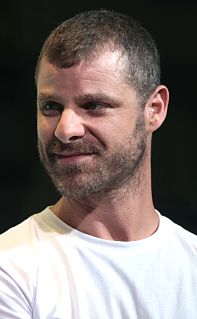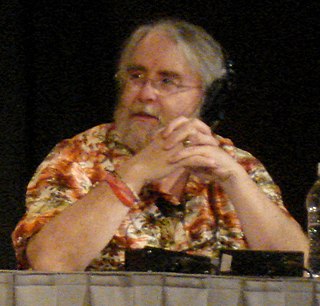A Quote by Eben Moglen
The great moral question of the twenty-first century is this: if all knowledge, all culture, all art, all useful information can be costlessly given to everyone at the same price that it is given to anyone; if everyone can have everything, anywhere, all the time, why is it ever moral to exclude anyone?
Related Quotes
For nearly a century, the moral relativism of science has given faith-based religion--that great engine of ignorance and bigotry--a nearly uncontested claim to being the only universal framework for moral wisdom. As a result, the most powerful societies on early spend their time debating issues like gay marriage when they should be focused on problems like nuclear proliferation, genocide, energy security, climate change, poverty, and failing schools.
The end of the Cold War removed the immediate causes of whole destruction but not the threat contained in our knowledge. We must tame this knowledge with the ideals of justice, caring, and compassion summoned from our common human spiritual and moral heritage, if we are to live in peace and serenity in the twenty-first century.
But anyone can write, right?'" Conner asked. "I mean, that's why authors get judged so harshly, isn't it? Because technically everyone could do it if they wanted to." "Just because anyone can do something doesn't mean everyone should," Mrs. Peters said. "Besides, anyone with an Internet connection feels they have the credentials to critique or belittle anything these days.
Humanity may destroy the possibilities for life on earth unless the freedom and power that we have acquired are channeled in new creative directions by a spiritual awareness and moral commitment that transcend nationalism, racism, sexism, religious sectarianism, anthropocentrism, and the dualism between human culture and nature. This is the great issue for the 1990s and the twenty-first century.
We are now returning to the 18th century empirical approach with the new interest in the evolutionary basis of ethics, with 'experimental' moral philosophy and moral psychology. As a result, we understand better why moral formulas are experienced as ineluctable commands, even if there is no commander and even if the notion of an inescapable obligation is just superstition. So moral philosophy has made huge progress.
The American people are not ready for the idea that everyone has at least a moral right to good, timely health care. They do agree they have a moral right, in critical cases, to have anything done to save their life, but they don't believe that anyone has a right not to fall that sick to begin with. So if you ask me, "Are we ever succumbing to some notions of solidarity as a nation?," I would say, "Not at all." I would describe us as a group of people who share a geography. That's a better description of Americans than that we're a real nation with a sense of solidarity.
School districts around the country, and the taxpayers that support them, have a moral right to the information the NFL might have concerning the medical aspects of the game, and to assess the risks to the students in their charge. Colleges have a moral right to that information for the same reasons.


































